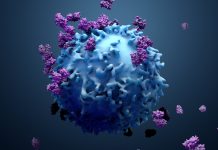A new cutting-edge artificial intelligence tool has been developed to revolutionise cancer treatment
This technology maps the function of proteins within cancerous tumours, providing clinicians with invaluable insights to tailor treatment strategies with unprecedented precision.
AI and cancer treatment
Cancer, particularly in forms like clear cell renal cell carcinoma (ccRCC), is challenging due to the variability in patient responses to existing treatments.
While the therapeutic drug Belzutifan has shown promise in treating clear cell renal cell carcinoma (ccRCC), its effectiveness varies among patients, with a response rate of 49% in those with the most common form of the disease.
Looking into ccRCC
To unravel the mystery behind these differential responses, researchers from the Universities of Bath and Nottingham looked into the function of Hypoxia-Induced Factor Alpha (HIF2α), a crucial target in ccRCC inhibited by Belzutifan.
Previous studies revealed something surprising, levels of HIF2α did not consistently correlate with tumour aggressiveness. Higher levels of the protein were paradoxically associated with decreased activity.
FuncOmap a revolutionary AI tool
This is where FuncOmap, the AI tool developed by a multidisciplinary team of biophysicists, biologists, and computational scientists, comes into play.
FuncOmap maps the functional status of target oncoproteins onto tumour images, allowing clinicians to visualise precisely where these proteins are interacting within the tumour. This breakthrough enables more accurate diagnoses and empowers clinicians to tailor treatments to individual patients with unprecedented accuracy.
Personalised AI cancer treatment
Professor Banafshé Larijani, Director of the Centre for Therapeutic Innovation at the University of Bath and co-lead of the study, emphasised the importance of personalised medicine in better treatment outcomes. By predicting individual patient responses to drugs, therapies can be customised to maximise effectiveness while minimising side effects.
The collaboration extends to Stanford University School of Medicine, where researchers are working to further develop FuncOmap for clinical use under the guidance of Dr. Amanda Kirane’s Laboratory.
Image analysis
Professor Eamonn O’Neill, Head of Bath’s Department of Computer Science, highlighted the interdisciplinary nature of the research, which combines computer science, biology, and physics to provide image analysis.
This holds the potential to directly influence clinical decision-making, not only in cancer treatment but also in other diseases.
Editor's Recommended Articles
-
Must Read >> AI unlocks cancer treatment secrets
-
Must Read >> The non-invasive cancer-grade probing system














